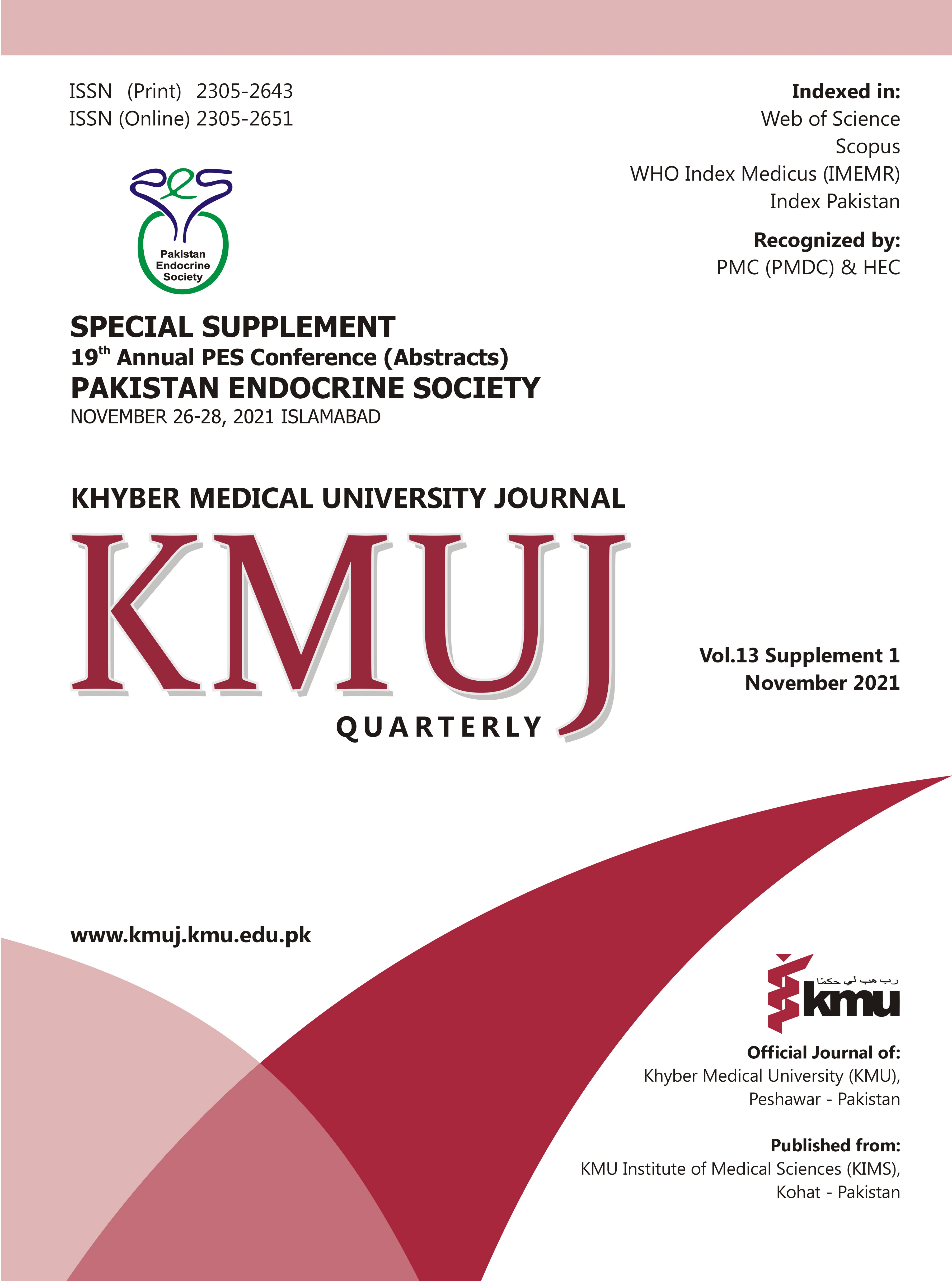TSHOMA: A RARE PITUITARY TUMOR
Main Article Content
Abstract
INTRODUCTION: TSH-secreting pituitary adenomas (TSHoma) or thyrotropinoma are rare pituitary tumors that secrete an abnormal Thyroid Stimulating Hormone (TSH) which constitutes up to 1%–2% of all pituitary adenomas. Patients often remain misdiagnosed for years. This case is reported to emphasize the importance of diagnosing it early and accurately to ensure timely management and relief of symptoms before perpetual damage is done.
CASE DESCRIPTION: We report a case of a 29 years old patient from Peshawar, Pakistan who was referred to Endocrine unit Hayatabad Medical Complex Peshawar for the review of his persistently raised TSH despite optimal dosing of thyroxine for 2 years. He was initially diagnosed and treated for hyperthyroidism with Neomercazole and then with radioactive iodine (RAI). Post-RAI he developed Hypothyroidism and was subsequently treated with optimal doses of Thyroxine. Despite optimal doses of thyroxine, TSH remains elevated. Previous thyroid function tests also showed persistently raised T3, T4 and raised TSH. Patient was clinically thyrotoxic. MRI findings reveals macro adenoma and was resected by neurosurgeon and advised Endocrine follow up visit in OPD after surgery.
CONCLUSION: TSHoma is highly under diagnosed. It is important to consider the pitfalls in diagnosis where normal or low alpha sub unit levels could lead to dubious differentials. The use of advance technology i.e. functional MRI scans to confirm diagnosis should be carried out early on leading to timely treatment options including radiotherapy and surgery.
Article Details
Work published in KMUJ is licensed under a
Creative Commons Attribution 4.0 License
Authors are permitted and encouraged to post their work online (e.g., in institutional repositories or on their website) prior to and during the submission process, as it can lead to productive exchanges, as well as earlier and greater citation of published work.
(e.g., in institutional repositories or on their website) prior to and during the submission process, as it can lead to productive exchanges, as well as earlier and greater citation of published work.
